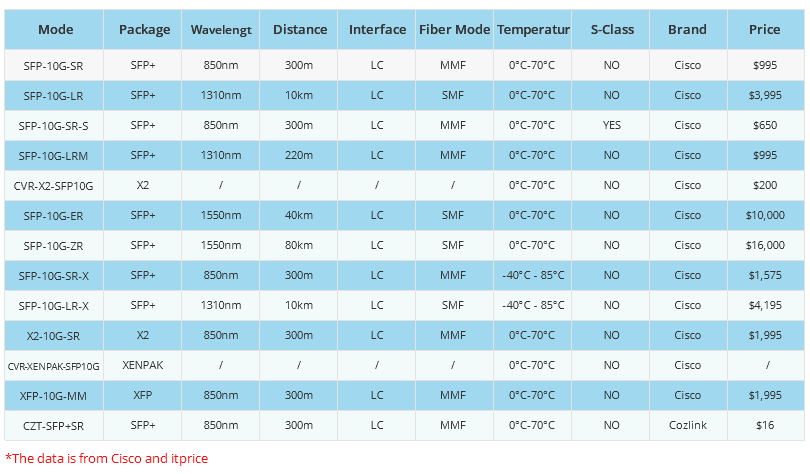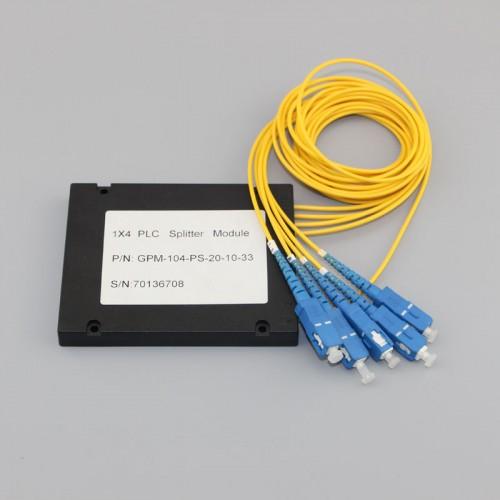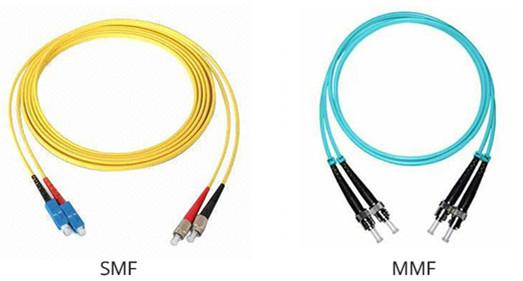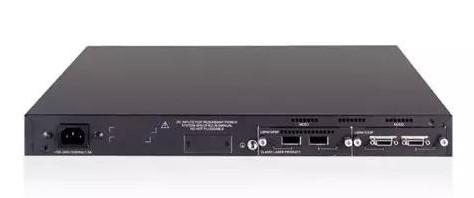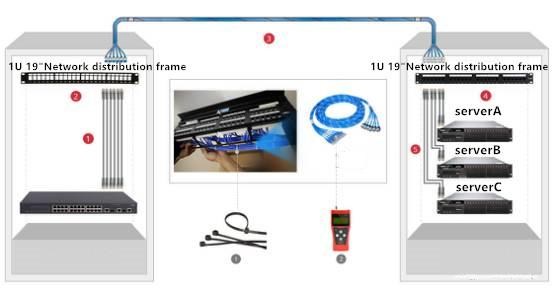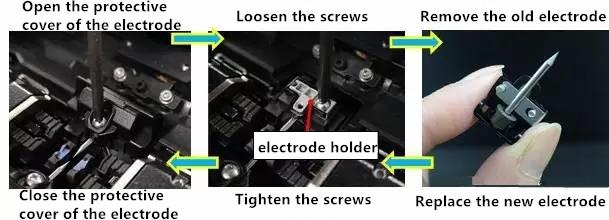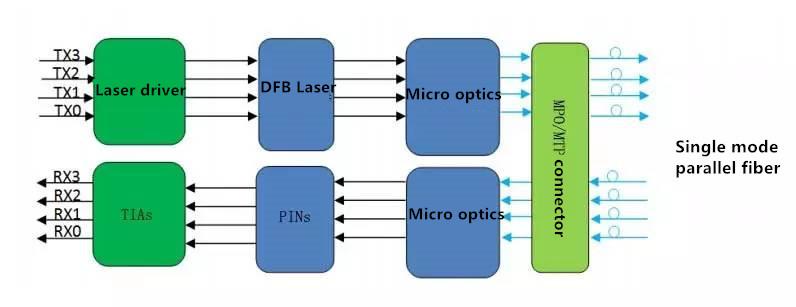- Related articles
- Optical Transceivers for Cisco WS-C3650-24PD-S Switch
- All Cisco ONS-SI-155-L1's information (List price, Specs, Datasheet PDF, Compatibility mat
- All Cisco QSFP-40G-ER4 price 's information (List price, Specs, Datasheet PDF, Compatibili
- All Cisco ONS-SI-2G-L1's information (List price, Specs, Datasheet PDF, Compatibility matr
- Optical Transceivers for Cisco WS-C3650-48TD-S Switch
- What is fiber optic technology used for?
- Optical Transceivers for Cisco WS-C3750V2-48TS-E Switch
- Optical Transceivers for Cisco SRW2016-K9-UK Switch
- Difference between XENPAK and CSFP
- Optical Transceivers for Cisco WS-C3750E-24TD-SD Switch

We know that in the present market, Gigabit Ethernet switches generally have two ports: RJ45 port and SFP port, both of which can be transmitted with Gigabit Ethernet. Then what are the differences between the two ports? How should we wire them respectively? This tutorial will answer one by one.
Gigabit Ethernet switch’s RJ45 port and SFP port
In order to meet the growing network needs, network upgrade in the machine room of the data center or server is urgent. Therefore, Gigabit Ethernet has become increasingly common. So, what kind of port Gigabit switch should be used to achieve Gigabit Ethernet connection? The following is the introduction to two ports in detail:
RJ45 port
Gigabit Ethernet switch’s RJ45 port is a built-in port. To connect two RJ45 port Gigabit Ethernet switches, we only need to use a super five or six cable. The following table is the specific rate and bandwidth of this connection:
| Shielded level | Maximum transfer rate(distance of 100m) | Maximum bandwidth |
Cat5 network cable | Unshielded | 1000 Mbps / 1 Gbps | 100 MHz |
Cat6 network cable | Shielded or unshielded | 1000 Mbps / 1 Gbps | 100 MHz |
SFP port
Gigabit Ethernet switch’s SFP port is in line with 1000BASE-T (IEEE 802.3ab) standard with the transmission rate of 1000 Mbps. Unlike the above RJ45 port, the SFP port of the switch must be inserted into the SFP optical module first, and then the network cable (Category 5 / Category 5 / Category 6 cable) must be used for data transmission. In addition, in the data center, local area network (LAN) and other applications, the switch’s SFP port also has 100 / 1000Mbps adaptive function. The following table is the specific situations of the SFP port:
| Optical module type | Optical module interface | Transmission distance | Maximum transfer rate(distance of 100m) |
Cat5 network cable | SFP optical module with electrical port | RJ45 | 100m | 1000 Mbps / 1 Gbps |
Fiber jumper | SFP optical module with optical port | LC(duplex) | ≥100m | 1000 Mbps / 1 Gbps |
RJ45 connection and SFP connection of Gigabit Ethernet switch
The following figure shows the RJ45 connection and SFP connection of the Gigabit Ethernet switch. The left side is the SFP connection of the UniFi switch and the RJ45 connection is on the right side of the UniFi switch. SFP connection requires the use of two SFP electrical modules and a Cat5 cable or the use of two SFP optical modules with optical port and a fiber jumper; RJ45 connection only needs to use a Cat5 cable.
Which is better?
From the above, RJ45 port and SFP port’s performance is basically the same, but from the cost, SFP port’s cabling costs are higher. However, the SFP port is still necessary because it supports both SFP optical modules with electrical ports and optical ports. The transmission distance of the latter is much longer than that of the RJ45 port. In the practical application, it has relatively high flexibility and scalability.














































